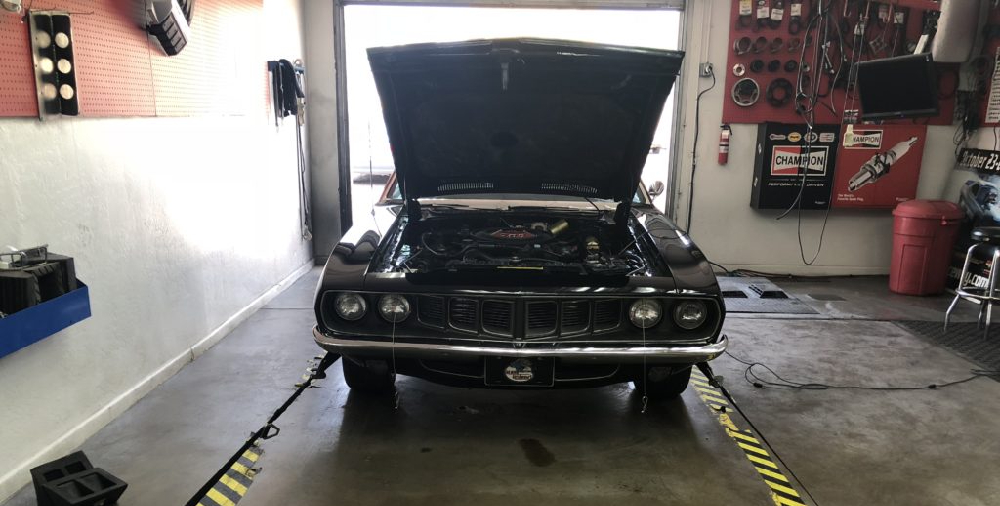In case you aren’t sure, a catalytic converter is one of the most essential elements to the exhaust system. The catalytic converter converts harmful gasses in the car’s exhaust to less harmful gasses that can be funneled through underneath the car and exit at the rear, in the tailpipe. Not only does it play a role in your car’s performance, but it also is key for healthier emissions and thus a safer planet.
While a catalytic converter typically will last around 8 years or a little over 100,000 miles, the repair or replacement process can accelerate from a number of factors. It can get damaged physically, clogged, or tarnished from oil or coolant. You won’t want to run on a bad catalytic converter, so here are signs your converter may be on the fritz.
Check Engine Light
One of the quickest ways to recognize that your catalytic converter is struggling is with your check engine light. Of course, this could allude to any number of other issues, but if you’ve been driving around for a while and haven’t needed any work on your converter yet, it could very well indicate that it’s time to take a look at it. In fact, a catalytic converter is one of the top three problems associated with a check engine light. The newer models of cars especially can quickly recognize how efficient the exhaust system is working, which is why the check engine light can indicate this.
Less Miles Per Gallon
If you think you’re filling up your tank more often (which is especially painful currently with high gas prices) despite a normal routine, your catalytic converter could be functioning improperly. Because a bad converter can restrict airflow of the engine’s exhaust, this affects the car’s fuel economy. The culprit specifically is likely a clog or blockage within the converter.
Clattering Sound in the Engine
Ignoring a loud, clattering sound from your car is never a good idea, and often this can be a problem with the catalytic converter. Because of heat, clogs, or other damage, a converter can get worn out which causes pieces to break apart and rattle. You will particularly notice this when starting your car.
Trouble Starting Your Car or Stalling
Along with a clattering sound while starting your car, another sign of a bad catalytic converter is the inability to even start your car. A clogged converter will keep gases in the car, and the engine will stall because of this increased pressure. How your car sounds when starting it can easily point you to problems with the catalytic converter.
Car Losing Fuel or Jerking Movements
Similar to a car having issues stalling, your vehicle may not be as strong when accelerating with the buildup of fumes in the car. Additionally, the car might make weird movements, such as jerking back and forth. The car’s overall performance often means the catalytic converter is not working right.
Engine Fire
One of the most deadly and scary symptoms that can link to a struggling catalytic converter is when the engine spontaneously catches on fire. As explained, if the converter is messed up, fumes will stay in the car. As a result, it can overheat and explode from the pressure. This is rare, but is certainly something to look out for and be wary of if you’re ignoring signs of a bad catalytic converter.
Contact The Experts
If you want your car to run well and last for a long time, it’s not recommended to ignore any issue your car is communicating to you, especially in regard to a catalytic converter. Luckily, if you have any problems or questions, you can trust the experts at Loper’s Performance Center. As one of the oldest speed shops in Arizona, Loper’s has been providing excellent customer care since 1967. Contact us today to get a quote or learn more about how we can help you.

